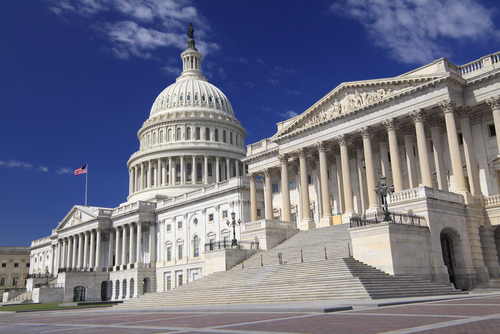A bipartisan roster of 50 congressional representatives sent a letter to Acting Labor Secretary Julie Su and Assistant Secretary for EBSA Lisa Gomez on Monday, bluntly stating their opposition to the latest iteration of the fiduciary rule, officially referred to as the Retirement Security Rule.
The letter came two days before the House Financial Services Subcommittee on Capital Markets is scheduled to hold a hearing called “Examining the DOL Fiduciary Rule: Implications for Retirement Savings and Access.”
Led by Reps. French Hill (R-Ark.) and David Scott (D-Ga.), the group urged the DOL to discontinue the pursuit of what it called the “problematic and counterproductive rulemaking effort” and should instead focus on implementing the retirement security provisions in the SECURE Act and SECURE 2.0.
“The proposal, which was previously referred to as the ‘Conflicts of Interest in Investment Advice’ rule …includes significant, unnecessary, and counterproductive changes to the existing regulatory framework governing the conduct of financial professionals who provide personalized investment advice to retirement savers under [ERISA],” the letter read.
Specific objections mentioned included:
Harm to Lower- and Middle-Income Workers: The signers accused the DOL of unreasonably dismissing “extensive research and real-world experience” that they said decisively demonstrated that the 2016 DOL fiduciary rule significantly harmed lower- and middle-income workers before being vacated by the Fifth Circuit Court of Appeals.
“A study of the 2016 fiduciary rule found that more than 10 million smaller retirement account owners lost the ability to work with financial professionals,” it claimed, citing Deloitte and the Hispanic Leadership Fund. “A more recent analysis found that if DOL adopts a new rule that is similar to the 2016 rule, the retirement savings of 2.7 million individuals with incomes below $100,000 would plummet by $140 billion over ten years. The analysis also found that people of color, particularly Black and Latino retirement account owners would be among the hardest hit, increasing the racial wealth gap by 20 percent.”
Conflicts of Interest Are Being Addressed: The letter mentioned the SEC’s Regulation Best Interest and state efforts to implement “significant and workable regulations that directly address the conflicts of Interest.”
“Neither DOL nor any other federal or state regulatory agency has presented evidence suggesting that this newly implemented comprehensive framework is not working effectively to protect retirement savers or demonstrates there is a need to make changes such as those provided for in the proposed rule. Without any evidence of deficiencies in the existing rules, it is difficult to justify the need for the proposed rule and the unnecessary instability it would cause for retirement plans, retirees, and savers.”
Ignoring Federal Court Rulings: It concluded by noting past attempts to implement a rule.
“For more than a decade, DOL has sought to increase its role and broaden the requirements of the fiduciary standards imposed under ERISA and the Tax Code beyond the authorizing statute. Federal courts have rejected these efforts numerous times in recent years,” it said. “While DOL claims the proposed rule is in alignment with the 2018 Fifth Circuit Court ruling that invalidated the 2016 fiduciary rule, it disregards the court’s finding that Congress intentionally structured ERISA to recognize the distinction between investment advice and sales.”
READ THE LETTER HERE

